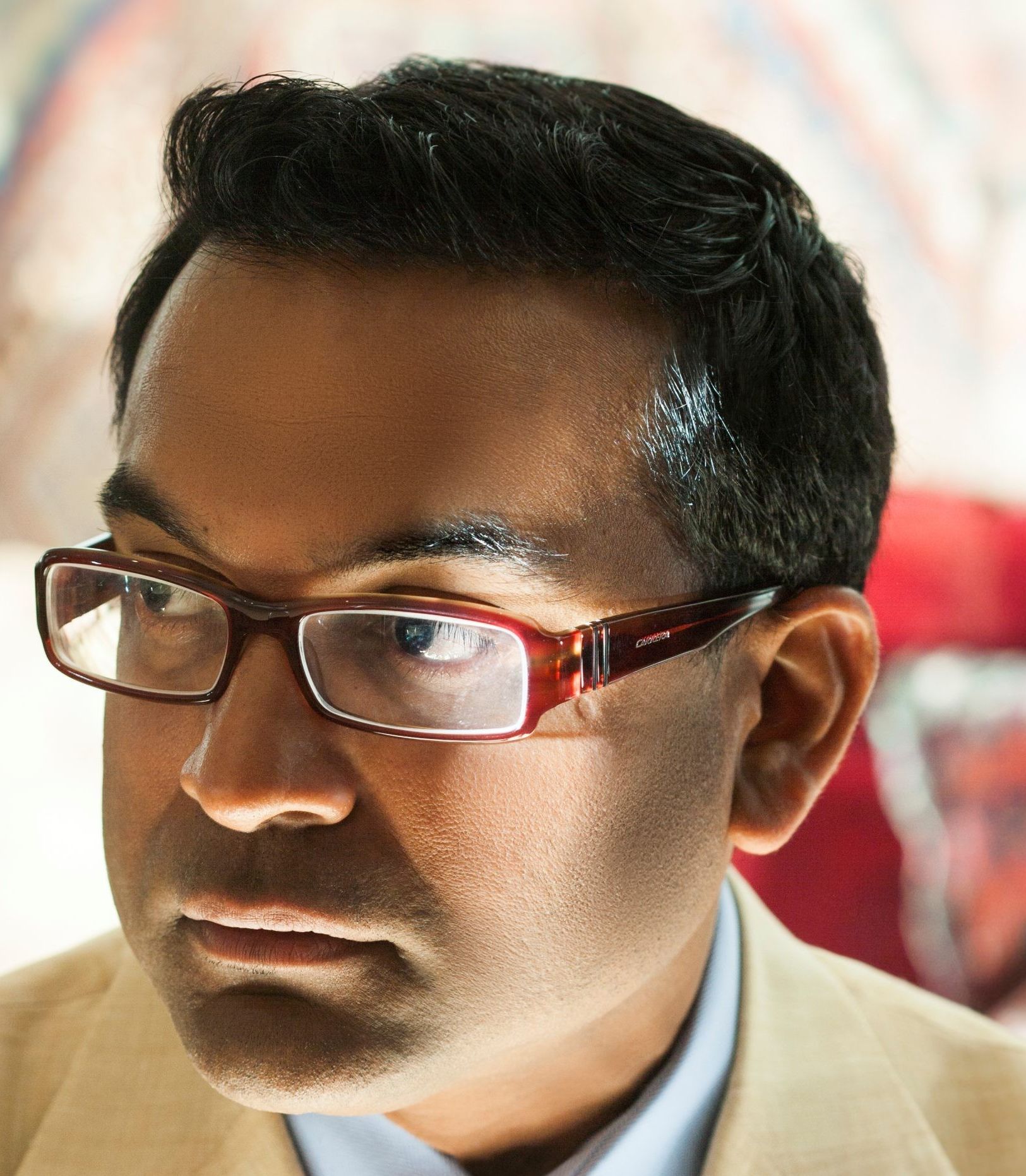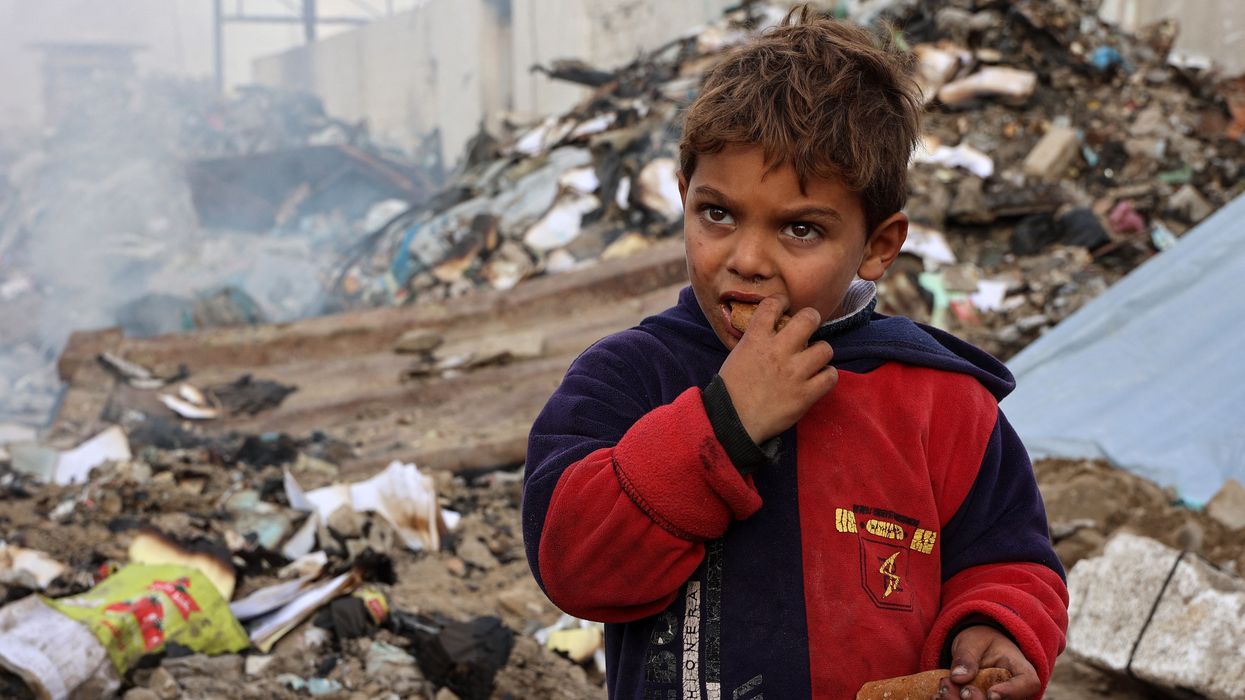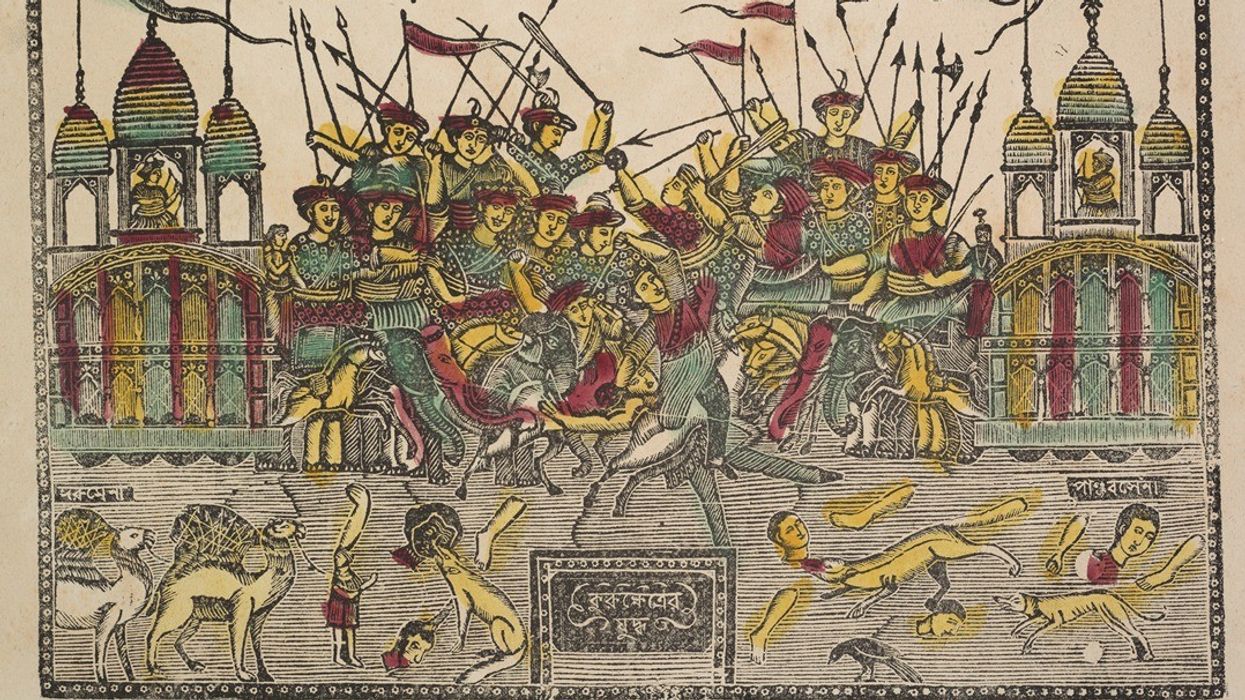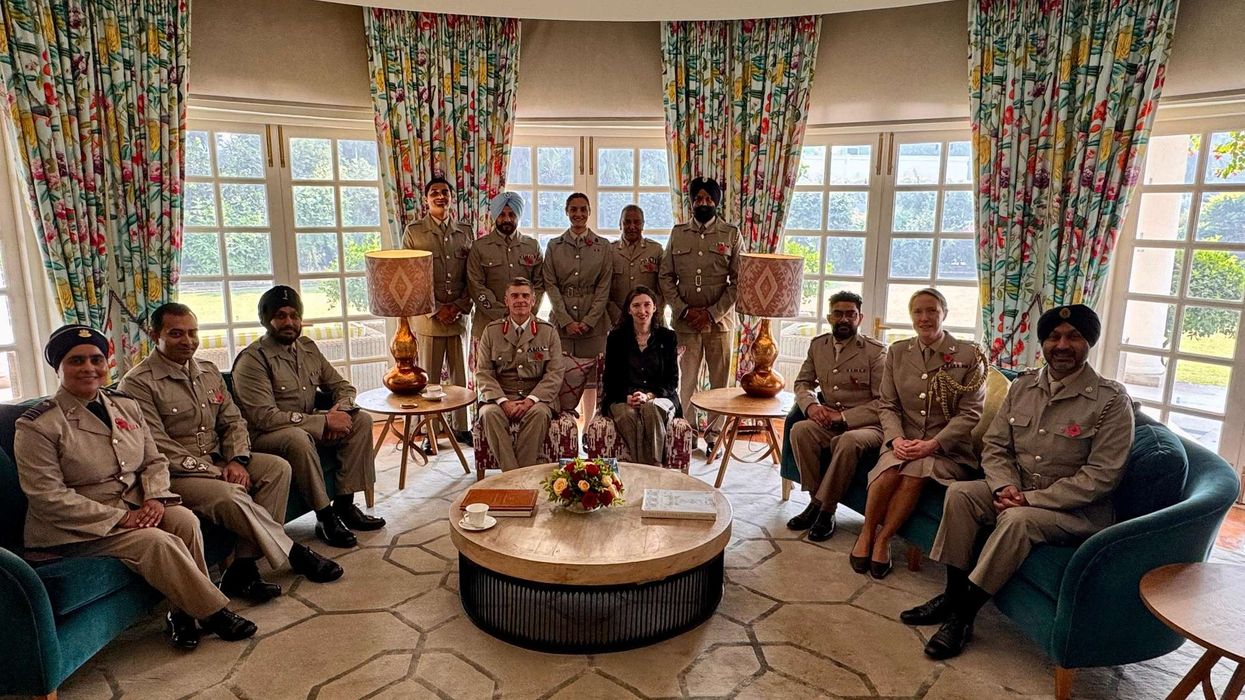THERE was supposed to be a ceasefire in the Israel-Gaza conflict, yet Israel appears to have turned to a new and deadly weapon – starvation of the besieged population.
Is this a cunning way to avoid accusations of breaking the peace agreement? Instead of re-starting the bombardment, is mass famine the new tactic?
From the start of the conflict, the quantity of aid being allowed in by Israel has fallen short of what humanitarian organisations maintained was necessary to keep civilians alive and healthy.
When the International Criminal Court issued arrest warrants for Israeli prime minister Benjamin Netanyahu and former defence minister Yoav Gallant in November 2024 for crimes against humanity and war crimes, it said there were reasonable grounds to believe both men were responsible for using “starvation as a method of warfare”.
Maybe what is new is that US president Donald Trump has now advocated for the mass removal of this indigenous population as part of what appears to be a hotel resort development deal. Does this perhaps explain the shift in approach on the ground?
After Israel stopped all aid into Gaza, it has now cut the remaining dribble of electricity into the starving strip. The stated goal is to pressure the release of the remaining hostages.
This brutal strategy is not unknown in military history. For example, the Nazi 900-day siege of Leningrad during the Second World War involved no access to food, but also no heating, during a winter period of -40°C affecting the city’s 2.8 million inhabitants.
Given Israel has varied the amount of aid getting in ever since October 2023, and even before then, why has the decision only now been made to apparently pursue full famishment?
Behind the scenes, has the new US regime finally taken the brakes off the Israel war machine in a way the previous administration of Democrat president Joe Biden was not prepared to?
It could be that the new Trump administration, having laid out an astonishing plan to expunge millions of Palestinians from their homeland to build casinos, now believes that the way to achieve this is by starving the civilian population into submission.
Hunger may produce an effect where non-combatants start to fall out with each other in a way that heavy bombardment didn’t seem to produce division, but rather solidarity.
If undernourishment is being used in this way, then it also becomes a psychological technique to generate disunity and even betrayal in a community that up until now has appeared astonishingly united in solidarity.
Famine is a powerful ‘motivational’ tool as the desire for food in the early throes of starvation becomes one of the stro-ngest driving forces known to psychology. However, Article 23 of the Geneva Convention (IV) states the obligation to permit access for essential supplies to civilian populations even during armed conflict. Protocols Additional to the Geneva Conventions, article 54 of Additional Protocol I (AP I), states that “starvation of civilians as a method of warfare is prohibited”.
The provisions stated in the APs are considered to be part of customary international humanitarian law (CIHL). The International Committee of the Red Cross’ interpretation of CIHL includes the prohibition under rule 53, stating that “the use of starvation of the civilian population as a method of warfare is prohibited”.
In 2019 the UN General Assembly adopted resolution 74/149 barring starvation of civilians as a method of warfare.
The International Criminal Court was established in 1998 with the aim of holding perpetrators accountable for serious international crimes. Specified under article 8(2)(b)(xxv) of the Rome Statute of the ICC is the war crime of “intentionally using starvation of civilians as a method of warfare by depriving them of objects indispensable to their survival, including wilfully impeding relief supplies as provided for under the Geneva Conventions”.
But why are there all these rules against famine as a weapon of war? Is it because it’s actually used a lot more than we realise? Is it easier to hide food than conceal an explosion?
In his recent book, Clearing the Plains, Canadian author James Daschuk, points out that while Canadians tend to think of themselves as decent, moral people, in fact the basis of the founding of the country included starving the original natives into submission.
The author of this new book on the clearing of the Canadian plains of the indigenous people, is an assistant professor at University of Regina in Canada.
James Daschuk points out that before the settlers arrived from Europe, bison, the staple food for millennia for the native people, provided a feast such that the First Nations of the Plains had been described by anthropologists as the tallest people in the world in the nineteenth century.
In a predicament that resembles with remarkable parallels the opportunism expressed by Trump and other members of Israel’s parliament, the prospect of building the Canadian Pacific Railway in the 1870’s, through native property meant that, overnight, famine was turned into an opportunity to clear the land along the CPR.
In his book entitled, Clearing the Plains: Disease, Politics of Starvation, and the Loss of Aboriginal Life, Daschuk explains food was used as a key weapon.
The Canadian prime minister of the day spoke openly in the House of Commons of his plan to remove First Nations people from their land. He boasted in parliament that the hungry were “kept on the verge of starvation to reduce the expense”, even demanding “proof of starvation” before food was distributed.
Some would conclude that remarkably similar sentiments have been expressed more recently in Israel’s parliament.
Back then, on Canadian native reserves, any suggestion of political dissent could be met by an order to withhold rations for entire communities for a week or more. Thousands died of malnutrition-related illnesses.
Many would agree the same thing is happening now in Gaza today.
What is perhaps most worrying about the implications of the links between what befell the Canadian indigenous population, and the destruction the Palestinians face right now, is that Daschuk argues the effects of deprivation were so profound, that to this day, generations later, the repercussions are still being felt, even presently, for that population in Canada, compared to the rest of the country.
First Nation Canadians can still expect in the modern era to lead shorter, more violent and sicker lives from the moment they are born compared to the rest of the country.
For those who know their history, what tragedy occurred in Canada in the 1870s appears remarkably similar to the cataclysm emerging now in Gaza.
Yet Canada is conventionally viewed, today, as a country full of some of the nicest people on the planet.

Dr Raj Persaud is a Harley Street consultant psychiatrist and author of The Mental Vaccine for Covid-19, published by Amberley Publishing.


















Anurag Bajpayee's Gradiant: The water company tackling a global crisis